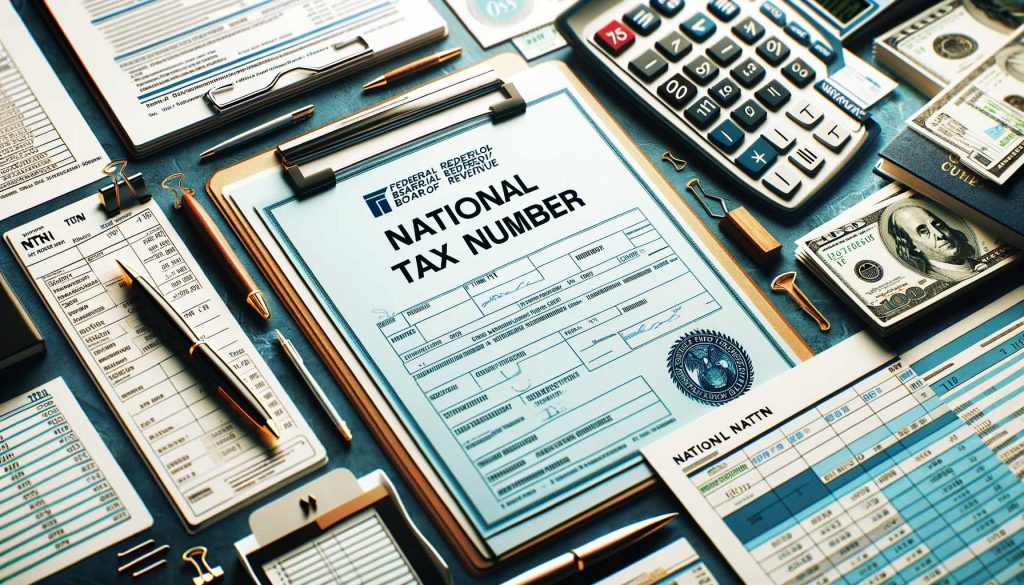How to Register an E-commerce Business in Pakistan? is the question that arises in the mind of all who are planning to start their e-commerce business abiding by all the formal requirements defined by the state. Starting your own e-commerce business is an exhilarating journey, but it comes with its own set of challenges, particularly when it comes to legal and regulatory matters. Registering your e-commerce venture in Pakistan is essential to ensure that you operate within the legal framework of the country. In this comprehensive guide, we will walk you through the entire process, providing you with a step-by-step roadmap to register your e-commerce business successfully in Pakistan.
- Understanding the Basics
- Choosing the Right Business Structure
- Getting a National Tax Number (NTN)
- Sales Tax Registration
- Importer Exporter Code (IEC) Registration
- Chamber of Commerce Membership
- Trademark Registration
- Data Protection Compliance
- Compliance with Payment Gateway Regulations
- How to Select a Business Idea and Name
- Final Thoughts
Understanding the Basics
Before we dive into the registration process, let’s familiarize ourselves with some key terms and concepts:
- E-commerce Business: E-commerce, short for electronic commerce, refers to the buying and selling of goods and services over the internet. An e-commerce business conducts commercial activities online.
- Business Structure: This pertains to the legal form your business will take, whether it’s a sole proprietorship, partnership, or private limited company.
- National Tax Number (NTN): An NTN is a unique identification number assigned to individuals and businesses for tax purposes in Pakistan.
- Sales Tax: Sales tax is a consumption tax levied on the sale of goods and services. E-commerce businesses often need to register for sales tax.
- Importer Exporter Code (IEC): An IEC is a code required for businesses involved in import and export activities.
- Chamber of Commerce: A chamber of commerce is an association of business owners and organizations that promotes and protects the interests of its members.
- Trademark: A trademark is a legally registered symbol or name that distinguishes a product or company and is used to prevent others from using the same.
- Data Protection Compliance: This refers to the adherence to regulations that safeguard the privacy and data of individuals, especially relevant if your e-commerce business handles customer data.
- Payment Gateway Regulations: These are guidelines set by the State Bank of Pakistan (SBP) to regulate payment gateways and ensure the security of online transactions.
Choosing the Right Business Structure
The first and perhaps most crucial step in registering your e-commerce business in Pakistan is selecting the appropriate business structure. The choice you make will have significant implications for your business’s operations, legal requirements, and taxation. In Pakistan, you have three primary options:
1. Sole Proprietorship
Definition: A sole proprietorship is the simplest form of business, where you are the sole owner and operator. Your business is inseparable from you, and you’ll need to obtain a National Tax Number (NTN) and Sales Tax Registration Number (STRN) to meet your tax obligations.
Tip: When choosing a business name, ensure it aligns with your selected legal structure, doesn’t mimic an existing business, and doesn’t conflict with state interests.
Resource: Securities and Exchange Commission of Pakistan (SECP)
2. Partnership
Definition: If you’re not embarking on this e-commerce journey alone and plan to run your business with one or more partners, you should register a partnership deed and obtain an NTN for your partnership.
3. Private Limited Company
Definition: For a more formal and structured business entity, consider registering your e-commerce venture as a Private Limited Company. This involves more comprehensive documentation, including Articles of Association and Memorandum of Association.
Getting a National Tax Number (NTN)
Your National Tax Number (NTN) is your unique identifier for taxation purposes in Pakistan. To legally operate your e-commerce business, you must have this number.
Step-by-Step Guide to Obtaining Your NTN:
- Fill out Form ST-1, available on the official website of the Federal Board of Revenue (FBR).
- Provide the required documents, which typically include your Computerized National Identity Card (CNIC) and a recent passport-sized photograph.
- Submit your application either in person at the nearest tax facilitation center or online through the FBR’s IRIS portal.
Resource: Federal Board of Revenue (FBR)
Sales Tax Registration
Sales tax registration is mandatory for businesses in Pakistan with a certain level of annual turnover. As an e-commerce business, you must register for sales tax to comply with the law.
Step-by-Step Guide to Sales Tax Registration:
- Visit your nearest Regional Tax Office (RTO) or utilize the FBR’s online portal.
- Fill out Form ST-2 and provide the necessary documents, including your NTN and bank account details.
- Submit your application.
Once registered for sales tax, you’ll be responsible for charging, collecting, and remitting sales tax to the government. It’s essential to file periodic sales tax returns to maintain your business’s legal status.
Resource: Federal Board of Revenue (FBR)
Importer Exporter Code (IEC) Registration
If your e-commerce business in Pakistan involves international trade and imports, you might need an Importer Exporter Code (IEC). This code is issued by the Pakistan Customs and is crucial for clearing customs and facilitating foreign trade.
Step-by-Step Guide to Obtaining an IEC:
- Complete the prescribed Form SRO 833(I)/2011.
- Provide your NTN, bank certificate, and other necessary documents.
- Submit your application to the local customs office.
An IEC is particularly relevant if you plan to import products for your e-commerce business or engage in cross-border e-commerce.
Resource: Pakistan Customs
Chamber of Commerce Membership
While it’s not compulsory, joining your local chamber of commerce can be highly advantageous for your e-commerce business. Chamber membership provides networking opportunities, access to business resources, and can enhance your business’s credibility.
Steps to Become a Member:
- Locate your local chamber of commerce.
- Visit their office or website to learn about the membership application process and associated fees.
- Complete the membership application.
Being part of a chamber of commerce can connect you with other business owners, allowing you to share experiences, learn from others, and stay informed about the latest business trends.
Trademark Registration
Protecting your brand is essential in the competitive e-commerce landscape. Registering a trademark for your business name and logo can safeguard your brand identity and prevent unauthorized use.
Steps to Register a Trademark:
- Conduct a trademark search to ensure your intended trademark is available.
- File an application for registration with the Intellectual Property Organization of Pakistan (IPO).
- Pay the required fee.
Trademark registration can be a lengthy process, but it’s an essential step to secure your brand’s future.
Resource: Intellectual Property Organization of Pakistan (IPO)
Data Protection Compliance
In an age where data is a critical asset, compliance with data protection laws is crucial. Pakistan has enacted data protection legislation to protect the privacy and data of its citizens. Ensure your e-commerce business adheres to these laws, especially if you collect and store customer data.
Resource: Data Protection Authority
Compliance with Payment Gateway Regulations
If your e-commerce business uses payment gateways, it’s vital to comply with the regulations set by the State Bank of Pakistan (SBP). The SBP has established specific requirements for payment gateways to enhance the security of online transactions.
Resource: State Bank of Pakistan (SBP)
How to Select a Business Idea and Name
If you’re considering expanding your business into the thriving market of Pakistan, one crucial step is learning how to register an e-commerce business in the country. Pakistan’s e-commerce industry has been on the rise in recent years, presenting ample opportunities for entrepreneurs and international traders. To get started, you’ll need to navigate the local regulatory landscape, understand the legal requirements, and choose the right business structure. This ensures that your e-commerce venture is not only compliant with Pakistani laws but also well-positioned to thrive in this dynamic market. So, as you explore potential business ideas and names for your international trade venture, keep in mind the importance of understanding the specifics of registering an e-commerce business in Pakistan to pave the way for your future success.
Once you’ve successfully registered your E-commerce business in Pakistan, you can explore additional opportunities to enhance your online presence, such as creating a professional WordPress blog website to connect with your target audience and promote your products or services.
Final Thoughts
Registering your e-commerce business in Pakistan is a comprehensive process that demands careful attention to legal and regulatory requirements. By following these steps, you’ll ensure that your business operates within the boundaries of the law, builds trust with your customers, and can grow effectively in a competitive online marketplace. Compliance and transparency are key to gaining trust and building a thriving online presence.
Always remember that this guide provides general information and should not be considered as legal advice. For specific guidance related to your e-commerce business, it’s advisable to consult with legal and financial professionals.
Now that you’ve navigated the complexities of registering your e-commerce business, you can confidently pursue your online entrepreneurial dreams in Pakistan. Compliance and a strong legal foundation are your keys to long-term success. Happy e-commerce journey!





